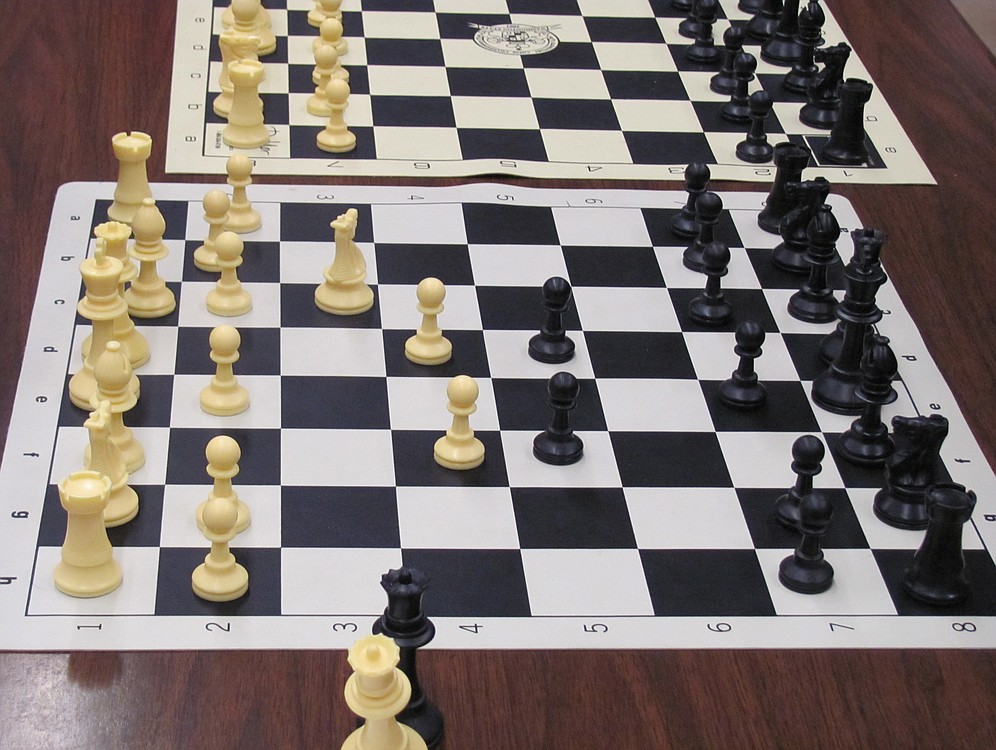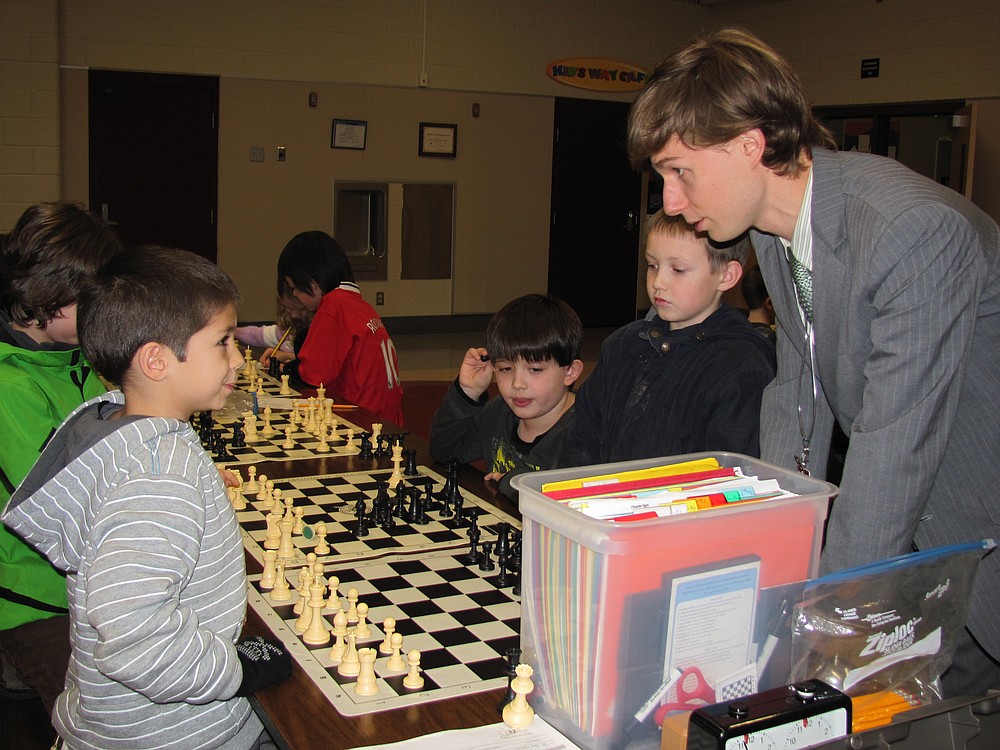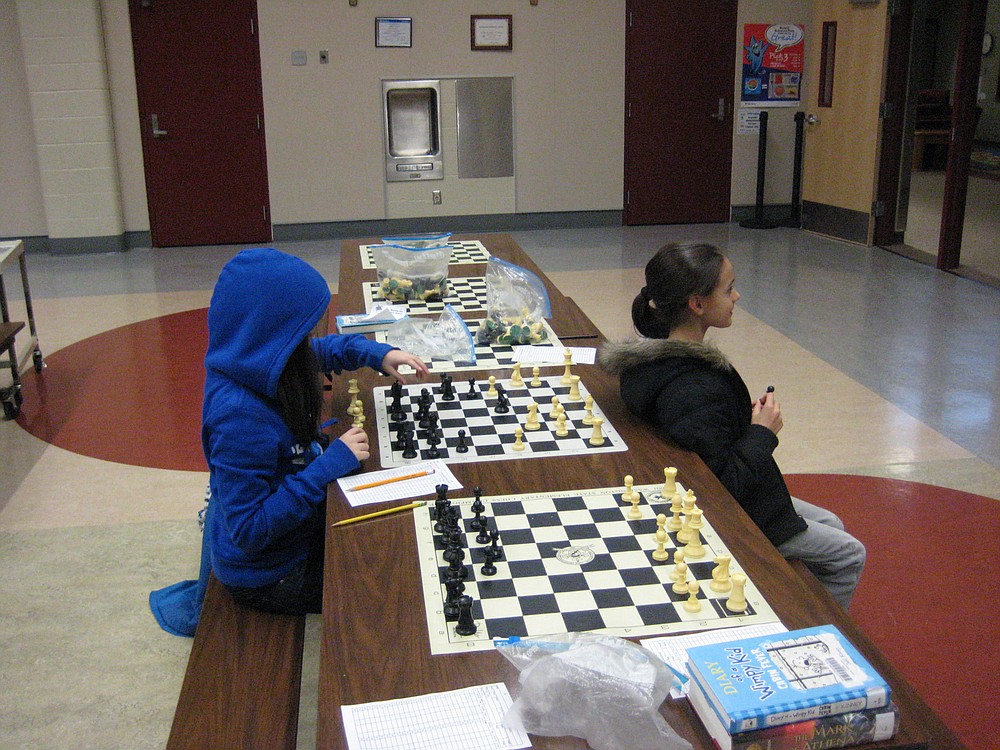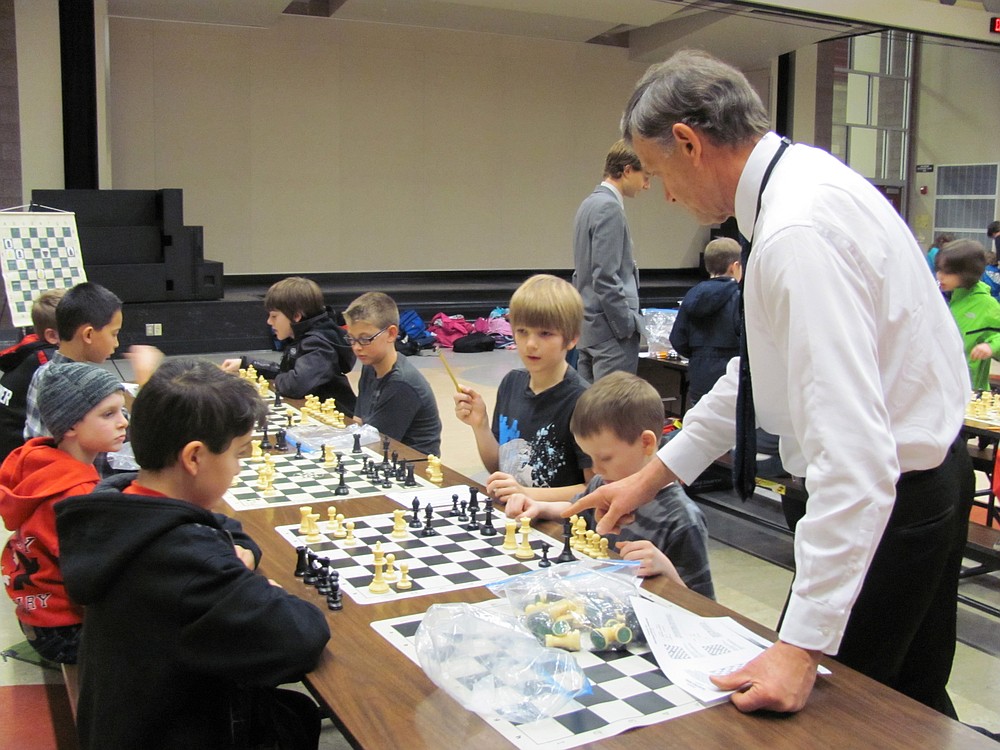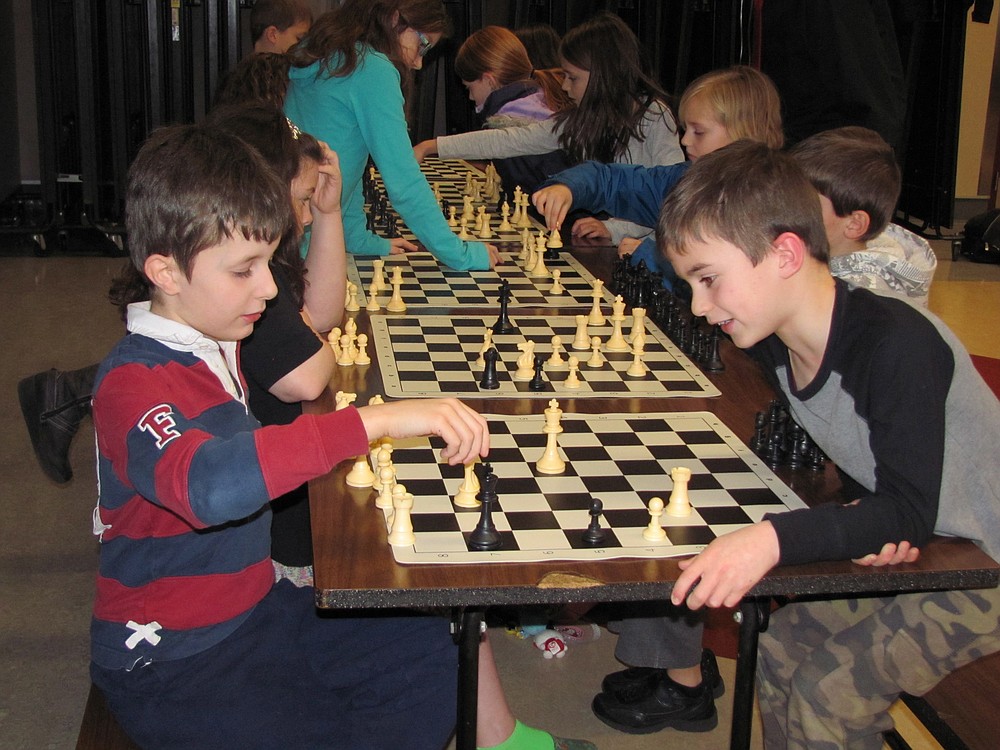Chess. When most people hear that word, they think of a challenging game that requires patience, skill and intelligence to master.While these descriptions are accurate, even the youngest elementary school student can learn, according to Alan Svehaug, chess instructor.
“Virtually everyone can learn to play chess if we keep them intrigued and challenged,” he said. “And they’ll keep playing if we break it down into simple parts. We teach them that chess exercises your brain the way sports exercise your body.”
Alan, and his son, Andrew, 26, teach using the Success Through Chess methods, which include creativity, critical thinking, communication and collaboration.
After school classes are being offered through Camas Community Education at Dorothy Fox Elementary. Grass Valley Elementary will begin a class on Tuesday, Feb. 5.
“I believe that virtually everyone 5 years old and up can learn to play chess,” Andrew said. “It’s a very complicated game, yet if taught correctly, it becomes quite simple.”


